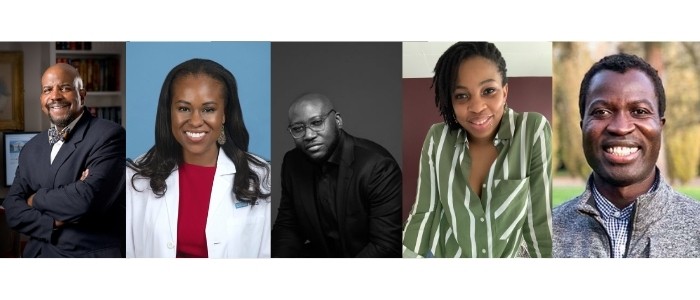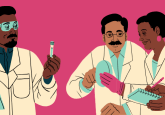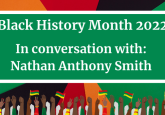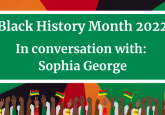UK Black History Month: A review of our content

This October, during the UK Black History Month, BioTechniques highlighted the best of the year’s content produced by or with Black scientists, sharing these pieces on all our social media channels. Here we take a look at these highlights and their importance to the life sciences.
Will the COVID-19 pandemic help end systemic racism?
Back in July, Dr Fola May spoke to BioTechniques about her health inequity research, expanding on the principals of the decades-long, but often ignored, pandemic of systemic racism. This pandemic, she explains, often manifests in worse health outcomes for marginalised communities. Fola describes how these health disparities have been highlighted by COVID-19, as the disease appears to disproportionately effect ethnic minorities in the west, particularly Black people.
Noting that the spotlight of COVID-19 has shed light on her research and the field of health disparities, Fola explains how we can begin to address these disparities, as well as how institutions and White health professionals can do more to help. Find out more about her experience of being a Black physician in the USS and more about health disparities in this comprehensive interview.
Helicopter research and the challenges and misconceptions of research in Africa
Issues of ‘helicopter research’, education of the political class on the importance of basic research and ensuring the representation of African researchers at the forefront of the life sciences are discussed in this Talking Techniques podcast episode.
Laura Boykin, CEO of the Cassava Virus Action Project, discusses the role of foreign researchers in Africa and how, too often, this role becomes unethical and unhelpful.
Nathasia Muwanigwa, Founder of the site Visibility STEM Africa, speaks about the experience of being an African researcher in Europe and the need to amplify the voices of African researchers.
Aminu Yakubu, Vice President of Research Planning and Ethics at 54gene, discusses the gap in genomic data from Africa and its impact on the development of medicines. He also explores the need to establish an equitable playing field for African scientists and the importance of improving the regulation of genetics research on the continent.
Regenerative engineering, racial profiling and healthcare disparities: A titan of life science speaks
In this interview with Cato T Laurencin, BioTechniques’ Editor-in-Chief Francesca Lake talks to the father of regenerative engineering and winner of the Herbert W Nickens Award about launching a new field, mentorship, disparities in healthcare and representation in science.
Cato speaks about his dedication to increasing the representation of Black and Brown people working in engineering, science and medicine with boots on the ground programs, pairing these programs with his work as a mentor. Highlighting the effect of systemic racism on Black workers in STEM, Cato reflects on how this translates to worse health outcomes for Black people and describes his efforts to correct these health disparities, founding a journal and institutions to address the issue.
Cato explains how the field of regenerative medicine has flourished over the last decade, since he defined it in 2012. Expanding on his philosophy that there are three ‘most important’ days in everyone’s life, he explains what these three days have been for him and the importance of a life lived ‘on purpose’.
Bringing sequencing and analysis to Africa and enhancing COVID-19 testing in Nigeria
The lack of genetic data from Africa included in the biobanks used by researchers all around the world is leading to a key issue in the development of precision medicines that work for all populations.
Hot off his recent inclusion in the Fortune 40 under 40 list, we spoke to Abasi Ene-Obong about his company 54gene, its aim to resolve this data gap in genomics, the role it has played in Nigeria’s response to COVID-19 and the recent partnership with Illumina, set to bring a state-of-the-art sequencing facility to Nigeria.
CRISPR: developing an equitable technology amidst a global pandemic
In one of our latest Talking Techniques episodes Geoffrey Siwo discusses CRISPR and the challenges facing its development into a technique that can be applied equitably across the globe.
Geoffrey talks about the importance of seizing the opportunity to influence the progress of the embryonic gene-editing technology, before the data bias in genomic data and the disparity in researchers working on the technique leads to ingrained differences in the success of the application in different populations. The impact of the COVID-19 pandemic on this development is also exposed.
We also discuss Geoffrey’s work, using CRISPR in antiviral research as a way of identifying small molecules capable of inducing broad-spectrum antiviral responses, with the potential to combat SARS-CoV-2.
Selected from our content posted over the last 6 months, each of these pieces highlight a different aspect of inequality observed in STEM and direct impacts that these inequalities can then carry through to wider society. We were pleased to have this content available to share and at BioTechniques we will ensure, year round, that our content is sourced from and includes a diverse selection of researchers, reflective of the life science community that we serve.





